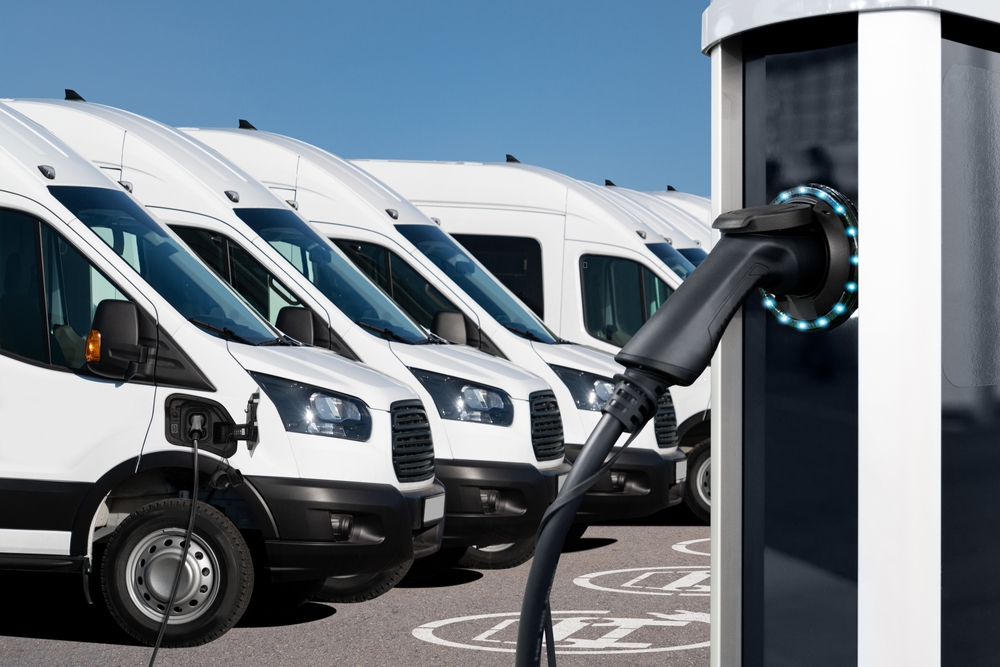The UK government has announced a substantial £120 million financing initiative to accelerate the transition to cleaner transport.
The purpose of this investment is to support businesses, van drivers and taxi operators to switch to electric vans, wheelchair accessible vehicles and taxis, and to adopt zero-emission alternatives. Easy, cheaper and faster.
Commenting on the investment, UK Minister of Roads Lillian Greenwood said:
“By successfully moving to zero emissions, we are driving growth across the UK, putting more money in people’s pockets, helping to rebuild the UK and provide plans for change.”
Plug-in Van Grant has been expanded
Minister Greenwood confirmed the Plugin Van Grant’s extension for another year, ensuring that businesses will continue to receive significant financial support.
Under this scheme, small van buyers (up to 2.5 tons) can request a grant of up to £2,500, while large van buyers (up to 4.25 tons) can receive up to £5,000.
Since its launch, the plugin Van Grant has supported the sale of over 80,000 electric vans, reinforced the government’s commitment to reducing carbon emissions and supporting businesses with green transitions.
The initiative is expected to encourage more businesses to invest in sustainable vehicle solutions and contribute to the cleaner transportation sector.
Easy to migrate electric van operators
To remove barriers to businesses adopting electric vans, the government is eliminating the additional training requirements currently only placed on zero-emission vans.
Unlike its gasoline and diesel counterparts, electric vans often require additional certification due to their slightly heavier weight.
Removing this bureaucratic hurdle reduces training costs, simplifies the employment process, and streamlines the operations of companies moving into the electric fleet.
Support taxi drivers and disabled passengers
Taxi drivers who want to get electricity can also benefit from extended support. A £4,000 grant is now available to purchase zero-emission black cabs and other taxi models, making transportation in the city more efficient.
Additionally, plug-in wheelchair accessible vehicle grant caps have increased from £35,000 to £50,000.
This move ensures a wide selection of vehicle models for passengers with disabilities, improving accessibility and mobility options.
Boost the electric car market
UK’s commitment to electric vehicles (EVs) continues to gain momentum. Over 382,000 electric vehicles sold in 2024 are up 20% from the previous year, but the shift to cleaner transportation is accelerating.
The affordability of EVs has been improved, with one of the three electric vehicles currently in use at under £20,000, and more than 21 new models available for under £30,000.
Owning an electric vehicle is also cost-effective, and drivers save £750 a year when they charge compared to fueling gas vehicles, primarily at home.
Retention of government zero-emission vehicles (ZEVs) incentives in the company’s automobile tax system further strengthens the financial interests of businesses and fleet operators.
Expanding charging infrastructure
Accessibility charging remains a key priority, with over 74,000 public interest points now available across the UK.
Last year alone, nearly 20,000 new chargers have been installed, making it easier than ever for EV drivers to charge their vehicles.
With the latest budget announcement of £2 million extra funds and £6 billion in expected private investment, the UK charging network will continue to grow, ensuring electric car owners can drive with confidence I’ll do it.
The eco-friendly future of UK transportation
With ongoing government support, expanding charging infrastructure and increasing affordability, the transition to electric transport is becoming more accessible to businesses and consumers.
As the UK advances its clean energy ambitions, the rise of electric vans and zero-emission vehicles marks an important step towards a greener, more sustainable future.
Source link

